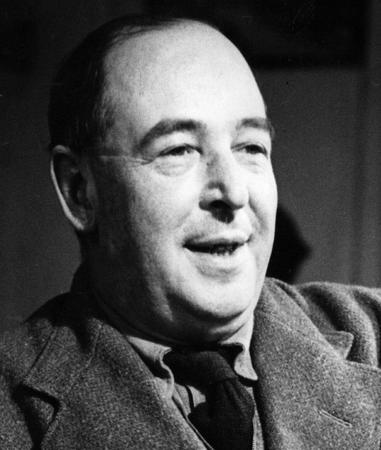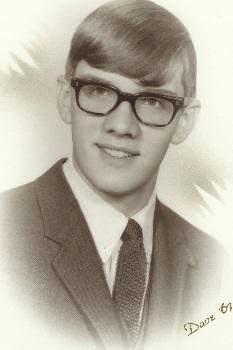Clive Staples was born in 1898 in England. He had an idyllic early childhood. But this changed when he was 9 years old and his mother died. Perhaps because his father couldn’t handle it, he sent his two sons to boarding school. The headmaster was eventually judged to be insane. He described this period as “the great continent had sunk like Atlantis”. There were now only islands of joy in the midst of an unsettled sea.
While he was brought up going to #church, it was boring and he eventually stopped. Ultimately, he embraced #atheism. He came to believe in the meaninglessness of life and that we needed to build our lives around our own individual values, which he said was “unyielding despair”. “Nearly all I loved, I believe to be imaginary and all I believed to be real was grim and meaninglessness”.
A few years later, he read George MacDonald’s book “Phantastes”. He was surprised because the words seemed to leap off the page and pull him into them. Shortly thereafter, he began to read G.K.Chesterton’s “The Everlasting God”. For the first time in his life, #Christianity began to make sense to him. He found that he was drawn to other writers that had this strange ‘twist’ to their writings…writers like Spenser, Milton & Johnson. In contrast, those he philosophically agreed with, like Voltaire, Mills, Well & Shaw, seemed uninspiring and just plain wrong. Some of his co-workers also had an enormous effect on him as they were Christians also. One-by-one, the obstacles to #faith seemed to fall like dominoes. In 1929, he received #Jesus Christ into his life. He became convinced of Christianity because he saw that it made sense. He saw that his atheism couldn’t explain things that Christianity could explain. He said “My argument against #God was that the universe seemed so cruel and unjust. But how had I got this idea of just and unjust? A man does not call a line crooked unless he has some idea of a straight line. What was I comparing this universe with when I called it unjust?” …”Christianity, if false, is of no importance. And if true, of infinite importance. The only thing it cannot be is moderately important”…”Supposing there is no intelligence beyond the universe, no creative mind. In that case, nobody designed my brain for the purpose of thinking. It is merely that when atoms inside my skull happen, for physical or chemical reasons, to arrange themselves in a certain way, this gives me, as a by-product, the sensation I call thought. But, if so, how can I trust my own thinking to be true? It’s like upsetting a milk jug and hoping that the way it splashes itself will give you a map of London. But if I can’t trust my own thinking, of course I can’t trust the arguments leading to atheism, and therefore have no reason to be an atheist, or anything else. Unless I believe in God, I cannot believe in thought: so I can never use thought to disbelieve in God”.
He then started writing some of the best Christian literature ever. And he wrote for many years. You’ve probably heard or read some of his books. Fifty years after his death, we’re still reading them.
His journey from atheist-to-Christian-to-perhaps the most influential Christian writer of our time went beyond even his imagination. One of his co-workers, who was also a believer, was J.R.R. Tolkein who wrote “The Hobbit” and “Lord of the Rings”. Unfortunately, Clive passed away on November 22nd, 1963…the same day President Kennedy was assassinated. His death went largely unnoticed by the American press. Walter Hooper calls him “the most thoroughly converted man I ever met”. By the way, his last name is Lewis.
You know him as….C.S. Lewis, professor at Cambridge and Oxford and author of:
Mere Christianity
The Chronicles of Narnia
The Screwtape Letters
The Space Trilogy
Plus many, many more
100 of his most loved quotes are at
www.kevinhalloran.net/best-c-s-lewis-quotes/
For His Kingdom,
Dave Maynard



